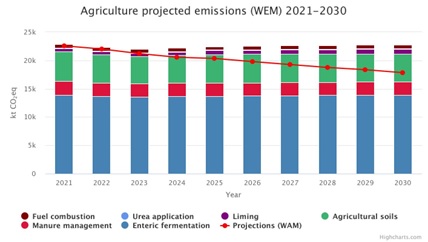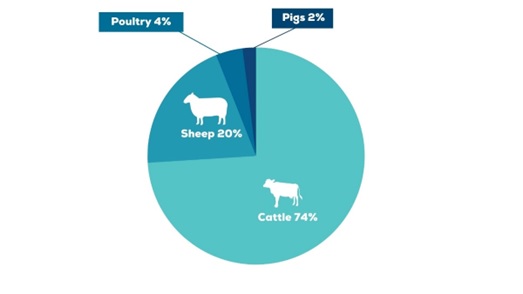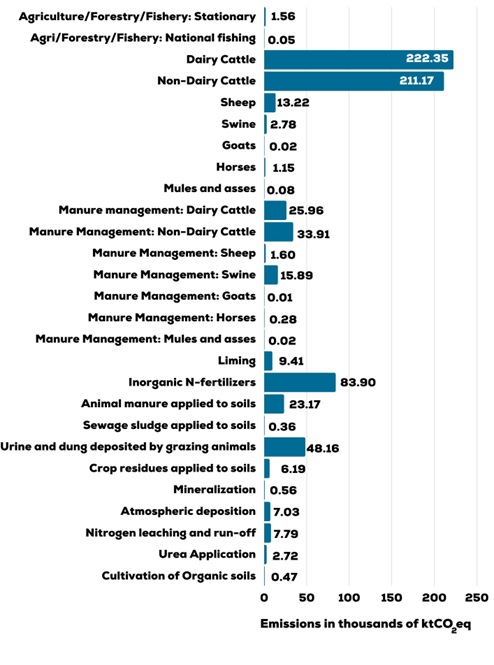Agriculture
Question to bear in mind as you read this page - What do you think the Council should do to help reduce emissions in this area.
Where does the Council have influence
The Council does not have direct influence over agriculture as this is outside of its remit. However, through the Department of Agriculture, Food and the Marine, the EPA and Teagasc, the Council will look to liaise with farmers on climate action.
The Council has responsibility for enforcing Nitrate and Water Quality legislation and carries out farm inspections to ensure these pieces of legislation are adhered to.
What is the national picture
Under the national Climate Action Plan, agricultural emissions need to be reduced by 25% by 2030 compared to 2018 levels. Climate change is already impacting how farming takes place in Ireland. We are having wetter winters, drier summers and increases in spells of extreme heat and cold. As guardians of the land, farmers can play an integral role in climate action to reduce the impact of these changes. Farmers are an essential part of the solution to reducing emissions. While the reductions requirements will pose challenges, there is scope for innovative income generation. Agriculture accounts for 37.5% of Ireland’s total emissions. This comprises of methane from livestock and nitrous oxide from fertilisers and manure management.

What is the local picture
Sources of emissions from agriculture in Waterford range from energy use, enteric fermentation (gases produced in animal guts), manure, liming and use of fertiliser in varying capacities. The energy consumption from the agriculture sector accounted for 130.5 GWh, which equates to a total emission of 44.6 kt of CO2. Energy use in agriculture accounts for 5% of the total emissions from this sector. 73% of the total emissions in agriculture arose from cattle and dairy farming and remaining 27% from pig, sheep, and poultry farming.
The remaining 724ktCO2e arise from enteric fermentation, fertiliser application and manure management.
The emissions from agriculture translate to 39.3% of Waterford’s total greenhouse gas emissions.

 Non-energy related greenhouse gas emissions in Waterford broken down by source
Non-energy related greenhouse gas emissions in Waterford broken down by source
What are other places doing
Zero Farm C is a research project in West Cork where researchers and farmers are working together to reduce greenhouse gas emissions from farming.
Farmers in Wexford are working with to protect the soil and to sequester greenhouse gases.